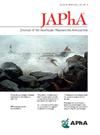Sounding off—Pharmacist insights on over-the-counter hearing aids: A qualitative focus group study
IF 2.5
4区 医学
Q3 PHARMACOLOGY & PHARMACY
Journal of the American Pharmacists Association
Pub Date : 2025-04-10
DOI:10.1016/j.japh.2025.102401
引用次数: 0
Abstract
Background
Hearing loss affects an estimated 30 million individuals in the United States significantly affecting communication, social engagement, and overall quality of life. In August 2022, the Food and Drug Administration published its final rule creating a regulatory category for over-the-counter (OTC) hearing aids for adults with perceived mild to moderate hearing loss. Few studies have assessed pharmacists’ readiness to provide patient support for these devices.
Objective
This qualitative study assessed pharmacist adoption and sustainable implementation of pharmacist-provided OTC hearing aids.
Methods
Community pharmacists were invited to participate in focus groups through self-selection via electronic invitations sent from the institution’s continuing professional development e-mail listserv. An interview guide was developed based on selected constructs of the Consolidated Framework for Implementation Research (CFIR). A thematic analysis was conducted on the transcribed interviews and coded by investigators. Focus groups were conducted until a point of saturation was reached (4 focus groups, 23 participants). Qualitative results spanned all 5 CFIR domains.
Results
Pharmacists viewed convenience and accessibility as major advantages offered by OTC hearing aids and felt the sale of OTC hearing aids fit logically within existing pharmacy workflow. However, they cited a lack of knowledge, skills, and training on the subject and devices, which influenced their reported lack of motivation and commitment to engage in selling OTC hearing aids. Pharmacists expressed frustration with the complex nature of these devices, noting significant variances in quality, technological sophistication, and cost.
Conclusion
Findings from our study clearly indicate a need for training and education opportunities for pharmacists who offer or will offer OTC hearing aids. Establishing a collaborative relationship with audiologists may help bridge the gap in knowledge and skills for pharmacists.
药剂师对非处方助听器的见解:一项定性焦点小组研究
听力损失影响着美国约3000万人,严重影响着沟通、社会参与和整体生活质量。2022年8月,美国食品和药物管理局发布了最终规则,为轻度至中度听力损失的成人非处方助听器创建了一个监管类别。很少有研究评估药剂师是否准备好为这些设备提供患者支持。目的对药师提供的非处方助听器的采用情况和持续实施情况进行定性研究。方法通过机构持续专业发展电子邮件列表发送的电子邀请,邀请社区药师自行选择参与焦点小组。访谈指南是根据实施研究综合框架(CFIR)的选定结构制定的。调查人员对采访记录和编码进行了专题分析。焦点小组进行,直到达到饱和点(4个焦点小组,23名参与者)。定性结果跨越了所有5个CFIR域。结果药师将OTC助听器的便利性和可及性视为主要优势,认为OTC助听器的销售符合现有药房工作流程。然而,他们表示缺乏知识、技能和对主题和设备的培训,这影响了他们缺乏销售OTC助听器的动机和承诺。药剂师对这些设备的复杂性质表示失望,注意到质量,技术复杂性和成本的显著差异。结论我们的研究结果清楚地表明,提供或将提供OTC助听器的药剂师需要培训和教育机会。与听力学家建立合作关系可能有助于弥合药剂师在知识和技能方面的差距。
本文章由计算机程序翻译,如有差异,请以英文原文为准。
求助全文
约1分钟内获得全文
求助全文
来源期刊
CiteScore
3.30
自引率
14.30%
发文量
336
审稿时长
46 days
期刊介绍:
The Journal of the American Pharmacists Association is the official peer-reviewed journal of the American Pharmacists Association (APhA), providing information on pharmaceutical care, drug therapy, diseases and other health issues, trends in pharmacy practice and therapeutics, informed opinion, and original research. JAPhA publishes original research, reviews, experiences, and opinion articles that link science to contemporary pharmacy practice to improve patient care.

 求助内容:
求助内容: 应助结果提醒方式:
应助结果提醒方式:


